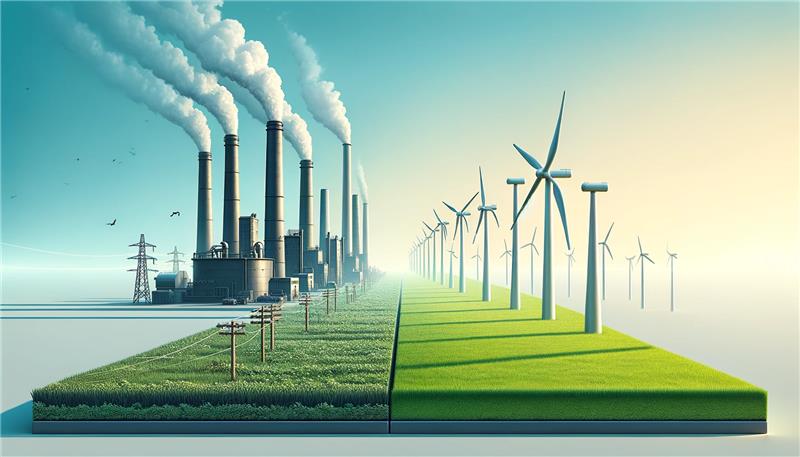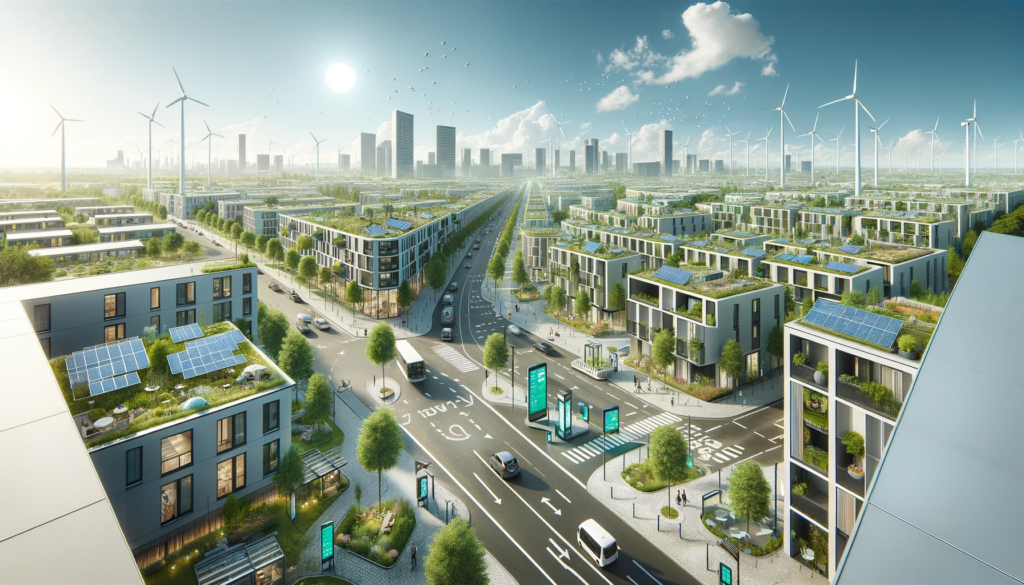

cost and rationalization pressure is increasing among customers , and at the same time it is becoming increasingly important to use finite resources carefully. At Weidmüller in Detmold, we take both challenges very seriously. The company won a sustainability award for 2023 .
Weidmüller can rightly be described as a traditional company. It has been based in Detmold in East Westphalia for over 75 years; its origins go back to Chemnitz and the Czech Republic and even back to the 1850s. The company name has stood for connection technology for many decades. With around 6,000 employees and annual sales of over one billion euros, the “hidden champion” from East Westphalia-Lippe now ensures that energy, signals and data can flow unhindered all over the world. Weidmüller's components for electrification, digitalization and automation are used on an industrial scale, for example in machines and factory automation, in transportation and in energy storage, in wind energy and photovoltaic systems.
There are two main challenges that the company is currently facing. One: high cost pressure, strong rationalization and an increasing shortage of skilled workers, including on the part of customers who build control cabinets for the applications mentioned. The other: The connections are - inevitably - made primarily of metal and plastic. Because resources are becoming scarcer, it is crucial to reduce consumption - while maintaining all the necessary material properties.

“In order to increase efficiency, we have basically rethought connection technology”
“In order to increase efficiency, we have basically rethought connection technology,” reports Volker Biblehausen, Weidmüller’s Chief Technology Officer and CEO. For example, the company has developed a solution with “snap in” connection technology that enables the use of robots. Although the connecting elements are very delicate, Weidmüller tinkered with it until it became possible for the connecting elements to be fixed by robot arms. “This means that fewer trained personnel are required when building complex control cabinets than before,” explains Biblehausen. The company also puts a lot of research and development work into a more sustainable use of the required materials. “We can’t avoid plastic and metal, which is why our big goal is to significantly reduce consumption,” emphasizes Biblehausen. For example, the company has managed to optimize many products so that they deliver the same performance using less material. According to the technology director, this creates noticeable material and therefore CO 2 savings. Weidmüller also processes punching waste and plastic and feeds it into the new plastic when producing the connecting elements. This means that up to twenty percent of so-called regranulate can now be used in the production of terminals. The proportion is expected to continue to rise. When it comes to reusing the punching waste, the figure is even 100 percent. The company recently received a gold medal in the “EcoVadis Sustainability Rating” for its sustainability development.
The company is rooted in its location in East Westphalia-Lippe. Chief Technology Officer and CEO Biblehausen appreciates the location: “We have a very innovation-friendly and transformation-promoting environment here. enormous change in recent years – from wood processing to electronics and automation. A real cluster has emerged with many innovative medium-sized companies, including several global market leaders. The technology network “it's owl” is an example of this. It now includes around 200 companies, research institutes and organizations. “This concentration provides a lot of impetus, also in the form of research projects, for example in the areas of artificial intelligence and sustainability ,” reports Biblehausen. For example, his company works closely with the universities of Lemgo and Paderborn as well as the Fraunhofer Institutes there. And values the location of East Westphalia-Lippe, but also NRW, as an important resource for qualified workers.
This success story of an innovative transformation was published in April 2024. There will be no updates or checks of the information afterwards.



The publication series “Transformation through Innovation” is intended to illustrate how companies in North Rhine-Westphalia have been able to write successful innovation stories thanks to the framework conditions created by the state of North Rhine-Westphalia.
Are you interested in being featured in a future edition?
Then contact us with your request at: